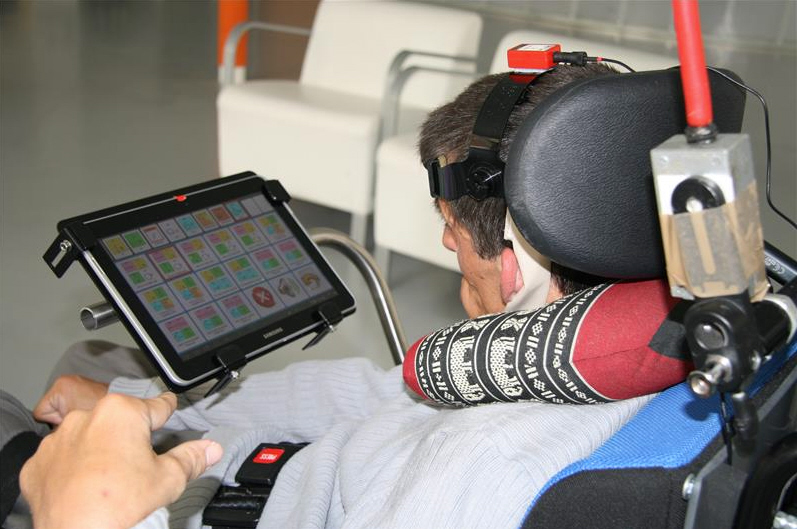Cerebral palsy is a chronic movement disability affects between 2 and 3 per 1,000 people. People with Dyskinetic Cerebral Palsy (DCP), 15% of the cases, have normal intelligence ability but cannot speak or express themselves due to lack of motor control. "Since they cannot express themselves, these children do not connect with other people and end up not developing their intelligence," says Biomechanics Institute of Valencia (IBV) researcher Juanma Belda.
To assist, the IBV has developed a functional prototype of the Augmented BNCI Communication (ABC) system that has been validated and operational in real life contexts. It is a communication system that offers different interaction modes including a brain-computer interface and they have developed a communicator that is available free of charge for Android tablets. The ABC communicator is composed of 4 independent modules based on the latest breakthroughs in neural signal processing, computer-assisted alternative communication and monitoring of biosignals.

ABC PROJECT. Credit: Biomechanics Institute of Valencia
The application, developed and evaluated with users by the IBV, is fully customizable and configurable in any language based on user characteristics. This program allows the user to communicate with his or her environment to perform daily life activities and to communicate with other people. The ABC communicator can be used on a tablet as an entry interface with three separate systems (via wifi) besides the tactile. These are inertial sensors (similar to the mobile phone technology that registers activity), electromyography systems (EMG) which detect the voluntary contraction of a muscle and brain computer interfaces.
According to Juanma Belda, "we found that placing either of these systems on the child with cerebral palsy, together with the tablet that we place on the wheelchair, enables the child to express his or her needs. A short training is required but it is easier than the learning process that any child needs to learn to read or write."
Emotions are an important aspect when it comes to expressing ourselves. Another innovation that ABC includes is the possibility of detecting the emotional state of DCP users to express this state and to help to manage their emotions. The system contains a skin sensor that can detect five emotional states such as positive (high and low intensity), neutral and negative (low and high intensity).





Comments